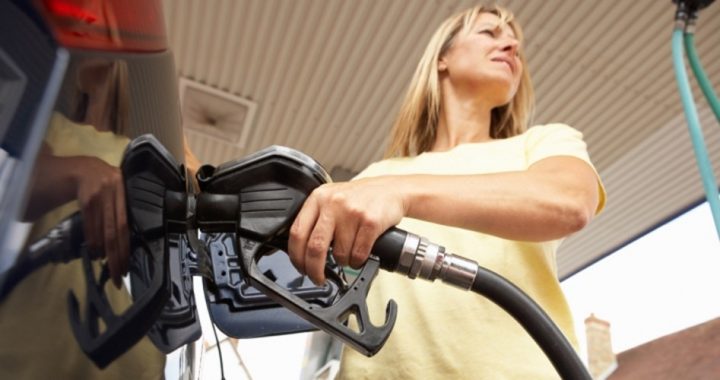
Should you need a license to pump gas? Some people seem to think so, which is perhaps why Oregon had a 56-year-old law prohibiting you from dispensing your own petrol. Now the state has finally modified the proscription, allowing people in rural areas to pump their own gas — and some Oregonians are getting the vapors.
Self-serve gas pumps are virtually everywhere; the only other state to prohibit them is New Jersey (no surprise: It’s ranked the fourth least free state). Oregon’s legislature outlawed the practice a half century ago ostensibly to protect its subjects residents. And now some are acting like children — minus the adventurous spirit.
As Liberty Nation’s Rod Thomson writes, “This is the practical reality of the general principle that government coddling creates entitlement, pampered residents with fewer freedoms, and reduced abilities to live independently. Oregon has been telling its residents for generations they are incapable of pumping their own gas, and now there are generations of Oregonians who are terrified at the prospect of doing what more than 300 million other Americans do without a thought.”
And some of the Facebook comments are truly amusing. Thomson presents three examples:
“I don’t even know HOW to pump gas and I am 62, native Oregonian … I say NO THANKS! I don’t like to smell like gasoline!” one woman commented.
“No! Disabled, seniors, people with young children in the car need help,” another woman wrote. “Not to mention getting out of your car with transients around and not feeling safe too. This is a very bad idea. Grr.”
“I’ve lived in this state my whole life and I refuse to pump my own gas. This is a service only qualified people should perform. I will literally park at the pump and wait until someone pumps my gas.”
Someone qualified? I guess I was a prodigy. As a 10-year-old traveling through Florida with my mother, as well as at other times, I always pumped the gas. (That’s what little kids are for, performing the drudgery they still think is fun.) Somehow, I managed not to torch the vehicle.
Of course, if “To pump or not to pump?” is the question, the market is the answer. In my area, gas stations generally offer both full-service and self-service pumps, with the latter being cheaper. So if the market demands them, it will have those highly trained Gasoline Dispensation Technicians.
Thomson says this petrol-pump panic reminds him of the “animated Pixar movie Wall-E, where the remainder of earth’s [sic] population cruise the galaxy on the spaceship Axiom. The passengers are so dependent on the automated ship that they have become obese, too feeble to walk and incapable of caring for themselves. They definitely would not have been able to pump their own gas.”
Yet people are largely governed by conditioning, which can cause them to both accept and expect what they shouldn’t. One good example was the reaction to 2008’s record-high gas prices, approximately $4 a gallon; many acted as if the rise was some kind of trespass against divine law.
Don’t misunderstand, I like cheap gas as much as anyone, and just happened to have a gas-guzzling car in 2008. There also were legitimate gripes in this regard, such as onerous gasoline taxes (example: Pennsylvania’s tax is 58.2 cents per gallon, and the federal gas tax is 18.4 cents), which amount to more than 48 cents per gallon on average.
In contrast, oil companies make only seven cents per gallon on average and gas stations only three cents. Yet while the government was extracting almost 7 times as much profit from gas sales as oil companies and 16 times as much as gas retailers, what were the media and public complaining about in 2008?
The onus was put on the private entities that actually provide the product, not on the governments that, like mafia dons, demand a huge cut of the fruits of others’ labors.
It’s also odd that some of the people complaining about $4 gas will pay, on average per gallon, $9.52 for Lipton Iced Tea, $10.17 for Gatorade, and 21.19 for Evian water. Ah, conditioning’s power.
On the other hand, conditioning via the media, academia, and entertainment can inure people to all sorts of lunacy, such as the image-is-reality notion that a boy is a girl if he thinks he is.
So my advice? If some Oregonians are upset about having to pump their own petrol, they should just identify as a gas station attendant.



